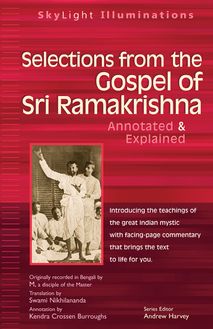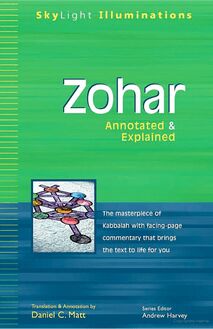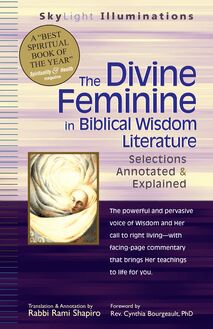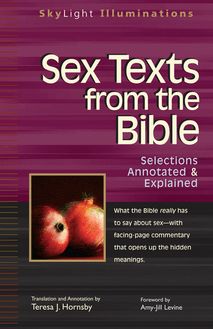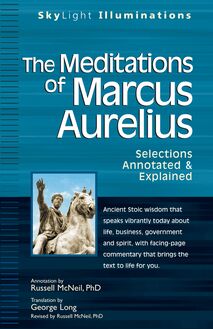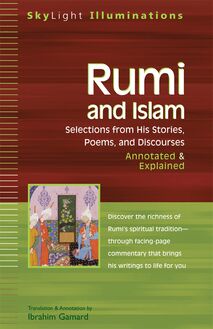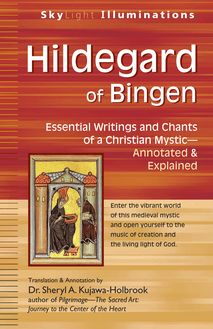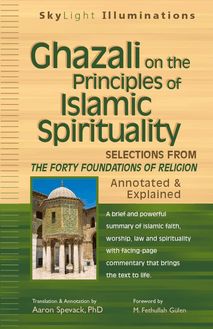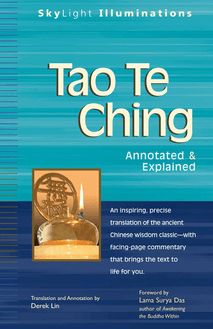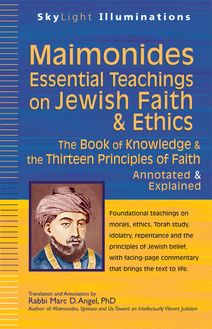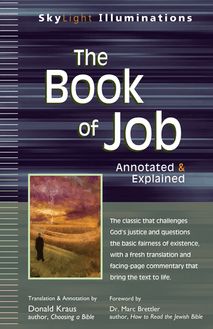The Qur'an and Sayings of Prophet Muhammad , livre ebook
133
pages
English
Ebooks
2010
Vous pourrez modifier la taille du texte de cet ouvrage
Obtenez un accès à la bibliothèque pour le consulter en ligne En savoir plus
Découvre YouScribe en t'inscrivant gratuitement
Découvre YouScribe en t'inscrivant gratuitement
133
pages
English
Ebooks
2010
Vous pourrez modifier la taille du texte de cet ouvrage
Obtenez un accès à la bibliothèque pour le consulter en ligne En savoir plus
Publié par
Date de parution
29 décembre 2010
Nombre de lectures
1
EAN13
9781594733499
Langue
English
The timeless insight of Islam’s sacred writings can enrich
your own spiritual journey.
For many in the West, the teachings of the Qur’an often are enshrouded in mystery and fear. Yet Islam’s holy book gave birth to one of the most powerful and enlightened civilizations the world has ever seen. By the sixteenth century, Muslim culture stretched from India to Africa to Europe, preserving with it the ancient learning that helped spawn the Renaissance. With its interwoven ideas of faith and reason, justice and mercy, the path of Islam—which literally means “surrendering to God’s will”—offers a uniquely focused and balanced approach to living life with a profound awareness of God.
With gentleness and insight, Sohaib N. Sultan leads you through the central themes of both the Qur’an and the collected sayings of Prophet Muhammad, known as hadith. These teachings dispel common misconceptions about Muslim beliefs and offer practical guidance for your own spiritual journey, from understanding the merciful nature of God; to cultivating peace and justice in the self, family, and society; to answering questions about the afterlife and how to attain it.
Now you can experience the wisdom of Qur’anic teachings even if you have no previous knowledge of Islam or Muslim writings. Insightful yet unobtrusive facing-page commentary explains the texts for you, allowing you to enter into the path of surrender to God.
Publié par
Date de parution
29 décembre 2010
Nombre de lectures
1
EAN13
9781594733499
Langue
English
I dedicate this book to my parents for their love, my sister and brother-in-law for their encouragement, my teachers for their wisdom, my wife for her patience and compassion.
The Qur an and Sayings of Prophet Muhammad: Selections Annotated & Explained
2008 Second Printing 2007 First Printing Annotation and introductory material 2007 by Sohaib N. Sultan
Yusuf Ali translation of the Qur an taken from The Holy Qur an: Original Arabic Text with English Translation & Selected Commentaries , by Abdullah Yusuf Ali (Kuala Lumpur, Malaysia: Saba Islamic Media, 2000). Ali s translation is also widely available online.
All rights reserved. No part of this book may be reproduced or transmitted in any form or by any means, electronic or mechanical, including photocopying, recording, or by any information storage and retrieval system, without permission in writing from the publisher.
For information regarding permission to reprint material from this book, please mail or fax your request in writing to SkyLight Paths Publishing, Permissions Department, at the address / fax number listed below, or e-mail your request to permissions@skylightpaths.com.
Library of Congress Cataloging-in-Publication Data Sultan, Sohaib. The Qur an and sayings of Prophet Muhammad : selections annotated & explained / annotation by Sohaib N. Sultan. p. cm. Includes bibliographical references. ISBN-13: 978-1-59473-222-5 (quality pbk.) ISBN-10: 1-59473-222-1 (quality pbk.) 1. Islam-Doctrines. 2. Islam-Essence, genius, nature. 3. Koran-Theology. 4. Religious life-Islam I. Title. BP165.5.S85 2007 297.1'227-dc22 2007001915
10 9 8 7 6 5 4 3 2
Manufactured in the United States of America Cover design: Walter C. Bumford III Cover art: Holy Qur an & Islamic Beads , by Karim Hesham, courtesy of www.istockphoto.com
SkyLight Paths Publishing is creating a place where people of different spiritual traditions come together for challenge and inspiration, a place where we can help each other understand the mystery that lies at the heart of our existence.
SkyLight Paths sees both believers and seekers as a community that increasingly transcends traditional boundaries of religion and denomination-people wanting to learn from each other, walking together, finding the way.
SkyLight Paths, Walking Together, Finding the Way and colophon are trademarks of LongHill Partners, Inc., registered in the U.S. Patent and Trademark Office.
Walking Together, Finding the Way Published by SkyLight Paths Publishing A Division of LongHill Partners, Inc. Sunset Farm Offices, Route 4, P.O. Box 237 Woodstock, VT 05091 Tel: (802) 457-4000 Fax: (802) 457-4004 www.skylightpaths.com
Contents
Foreword
Introduction
A Note on the Translation
1. On Contemplation, Reason, and Faith
2. On God and Divine Attributes
3. On Revelation and Scripture
4. On Prophetic Character and Message
5. On the Purpose and Responsibility of Human Life
6. On the Stages of Human Life
7. On the Psyche, Heart, and Soul
8. On Spiritual Practice and Discipline
9. On Laws in Daily Life
10. On Noble Character and Good Morals
11. On Envisioning a Just and Moral Society
12. On Pluralism, Inclusive Theology, and Interfaith Relations
13. On Peace, War, and Reconciliation
14. On Women and Gender Relations
15. On Marriage and Family Life
Acknowledgments
Notes
Suggestions for Further Reading
About SkyLight Paths
Copyright
Foreword
Jane I. Smith
Islam does not support violence, but is a religion of peace. The Qur an does not condemn Christians and Jews as idolaters, but insists that all who follow the teachings of the Prophets are inheritors of the gardens of paradise. Muslims do not mistreat women, but consider them to be partners in their families, their communities, and their nations.
In recent years, and particularly since the tragic events of 9/11, Muslims in the West have tried to affirm all of this and much more about the texts and traditions that guide their lives and rule their hearts. Listen, they say, and let us tell you about true Islam, its beauty and its power to give those who would listen to its call a guideline for life and a key to entering into the presence of God. All too often, however, they have not been heard by a broader audience, and citizens of the West continue to ask, What is this Islam that is becoming so visible in our land? What do Muslims really believe, and how can they live with us as fellow citizens in a country far from the traditional heartlands of Islam?
Despite the many efforts to dissociate Islam from movements that support terror and hostility toward the West, fears and misunderstandings are difficult to dispel. Current polls and surveys suggest that prejudice against Islam, Prophet Muhammad, and the Holy Qur an is not declining but is actually on the rise. As a non-Muslim student and teacher of Islam who is always in search of readable and persuasive presentations about the faith by Muslims themselves, I have been delighted to read this work by my friend and former student Sohaib N. Sultan. I believe it will prove to be a significant contribution to the literature available to the general public on the religion of Islam offered from a personal faith perspective.
Muslims face a formidable task in presenting Prophet Muhammad as not only the vehicle through which the words of God were communicated to humanity and recorded in what we know as the Qur an, but as the very model for human piety. The history of Christian-Muslim relations has some very bleak aspects, among them the consistent Christian disparaging of the Prophet as a warmonger, a charlatan, and a libertine, and ridicule of the Qur an as a sadly lacking and misguided attempt to duplicate Jewish and Christian scriptures. This legacy of misunderstanding remains deep in the psyche of the West, and the chore of disentangling it from the good intentions of Christian evangelism or from assumptions implicit in Western foreign policies is formidable.
Meanwhile, Muslims are coming to be a more numerous and more visible presence in America and Western Europe. The last three to four decades in particular have brought new Muslim immigrants to virtually all of the countries of the West. Many Muslim institutions have emerged to help these new citizens struggle to affirm their identity both in relation to their traditional faith and to the nations of which they are now a part. The United States and the countries of Western Europe are responding to this new presence in a variety of ways depending on their respective religious and political heritage. The unfortunate reality that occasional acts of terror continue to be committed by individuals who associate themselves with Islam makes the task of providing a culture of welcome increasingly difficult, exacerbated by sometimes clashing cultural expectations and rising competition for jobs.
America by heritage is a place of greater cultural mix than Europe, and at its best has fostered an ideology of both assimilation and multiculturalism. In reality, however, Muslims, along with many other immigrants arriving on American shores, have not always been welcomed, and have often had difficulty blending into what has been touted as the American cultural melting pot. Immigrant Muslims today also face the difficulty of a challenging American atmosphere of secularism, as well as the necessity of engaging with increasingly large groups of American-born Muslims, including African Americans. In America today Muslims comprise the most diverse, most heterogeneous community to have existed anywhere at any time in the history of the world. It is small wonder that Americans find it hard to know who Muslims really are, what they believe, and how they fit into an already complex American culture.
The task of explaining and interpreting Islam in its many forms, but with its firm foundation in the Qur an and traditions of the Prophet, is indeed challenging. This book by Sohaib N. Sultan rises to that challenge. The Qur an in its many English translations, which in reality are attempts at interpretation, is not easy for non-Muslims to grasp or appreciate. Armed with their inherited prejudices, which are often supported by current religious and political rhetoric, westerners find it easy to dismiss the Qur an and the Prophet of Islam as anachronistic, erroneous, or irrelevant. For the reader not used to its particular style, the text of the scripture itself may be difficult to follow. Sohaib s work helps open the way for both understanding and appreciation of the Holy Qur an. It provides a narrative of the life and sayings of the Prophet, and the experiences of the early community, that help reveal the integrity of the scripture as it is experienced by the believer.
Many efforts have been put forth recently by Muslims and other scholars of Islam to explain and interpret the beliefs, practices, doctrines, and documents of Islam. Sohaib s rich rendering of the basic texts of the faith is remarkable in a number of ways. He is a deeply devout Muslim, and his comprehension of the Qur an and the traditions of the Prophet comes from a lifetime of faithful practice. The gentleness and warmth of his own character are revealed in the care with which he opens windows on the text and allows what he understands to be God s own words speak directly to the reader. One is drawn into the text in such a way that he or she works alongside Sohaib to draw out the meaning of each passage. Sohaib has taken traditional Arabic terms and concepts and given them a full and rich treatment that helps convey their meaning in a broad cross-cultural context. He is also a man of this twenty-first century; his style is light and sometimes funny as he lets us know that religion is not antithetical to humor.
This book makes use of several translations of the Qur an, most notably that of Yusuf Ali. Sohaib s own rendering of the verses he wants to explicate is informed by a deep sense of what
